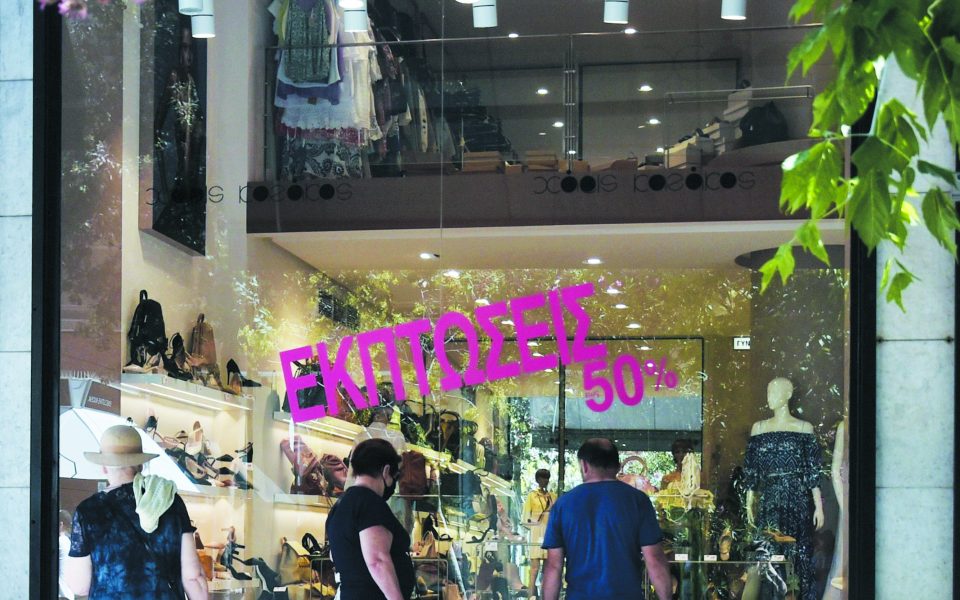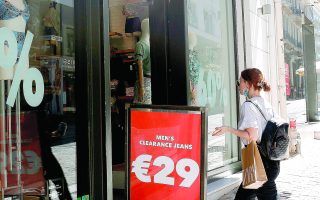Retail bounced back in June

June 2021 saw retail turnover rise steeply, compared to 2020, when the economy was emerging from a strict lockdown, but also to May 2021, according to data announced on Tuesday by statistical authority ELSTAT.
Turnover in retail trade rose 11.7% in June 2021 compared to June 2020 and 7.1% from May 2021. Sales volume (turnover at constant prices) rose 10.8% and 4.8%, respectively.
The greatest year-on-year turnover increase was at fuel stations; however, it was more due to the rise in fuel prices than sales volume. Turnover was up 23.3% year-on-year, while sales volume was up 6.8%. By contrast, in pharmaceuticals-cosmetics and especially clothing and footwear, the turnover increase was the result of more customer visits to stores.
Specifically, turnover in clothing and footwear rose 13.8% year-on-year and sales volume was up 13.4%. In pharmaceuticals and cosmetics, turnover was up 18.4% and sales volume 24.1%. In bookstores and stationery stores, turnover gained 10.4% and sales volume 11.4%. Supermarkets, which never had to shut down during the lockdowns, saw turnover increase 7.4% and sales volume 7.2%.
Sales at multistores dropped 1% year-on-year, but rose 12.9% from May, a difference that has to do with the less strict measures imposed on this category and a little less anxiety from consumers about places with large numbers of people.
The Covid-19 pandemic also acted as a catalyst in the way stores operate: Nearly six out of 10 retailers (58.2%) say they have a website to conduct their sales. Certainly, this can also be read to mean that over 40% of retailers have still to adapt to digital markets.
A survey by the Athens Merchants’ Association (ESA) shows that, among the retailers selling online, the percentage of e-sales to their overall ones was, for 9.8%, negligible; for 28.9%, 1-5%; for 21.1%, 6-10%; for 16.2%, 11-15%; for 2.9%, 26-30%; and for 8%, 31-50%; just 1% of retailers with online sales said they account for the majority of their sales.
Another sector of the economy, food services, is still dependent on government subsidies. Official data show that support payments of more than €100 million had been made by August 27 and total support is expected to exceed €280 million.





